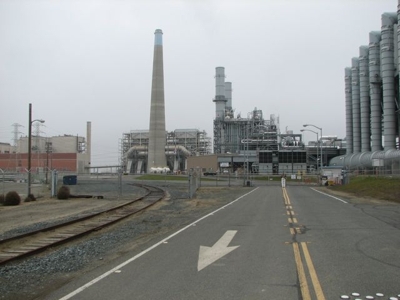Power Plants and Nitrogen
The California Energy Commission has approved five power plants in the immediate vicinity of the Antioch Dunes National Wildlife Refuge. Each of these plants causes nitrogen to be deposited at the Dunes, changing the chemical composition of the dune soil so that it favors invasive weeds. If this continues, all three endangered species at the Antioch Dunes could be lost.

Gateway Generating Station
The long-term chronic adverse biological effects of nitrogen deposition on native ecosystems and associated animals have been described in a number of papers. Sand dunes like the Antioch Dunes are nitrogen deficient, and the changes in plant and microbial communities resulting from increased amounts of the airborne deposition of this chemical has been documented to cause cascading negative effects on ecosystem processes and the species that depend upon the structure of the existing native plant community. One of the primary adverse effects is the enhancement of environmental conditions for the invasion of non-native weeds, which outcompete native plants.
Currently, the Antioch Dunes National Wildlife Refuge receives nitrogen deposition from the surrounding atmosphere at a rate of 6.51 kg-N/ha/year This is above the level at which nitrogen deposition effects must be assessed for impacts on species and ecological communities. In nutrient-poor soils and deserts like those found at the Antioch Dunes this level is around 4-6 kg-N/ha/year; see also Exhibit A. The power plants are roughly within one mile of the Antioch Dunes, and will deposit nitrogen into the Wildlife Refuge.
The Lange’s Metalmark Butterfly, the Antioch Dunes Evening Primrose, and the Contra Costa Wildflower are all highly endangered, and even small changes in the plant distribution at the dunes could take these species, adversely modify critical habitat, impede recovery, and even cause the species to go extinct. In particular, the Lange’s Metalmark Butterfly is so critically endangered that a single failure in the productivity of the species host plant could lead to the permanent extinction of the species

Leave a Reply
Want to join the discussion?Feel free to contribute!